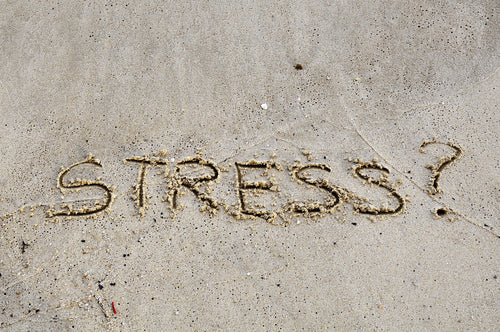
The Connection Between Eczema & Stress
Share
Eczema and Stress: What’s the Connection?
You know stress isn’t great for your mental health. Do you realize the impact it can have on your skin? We’re not talking just about the pre-exam pimple, but breakouts of itchy, scaly eczema and other autoimmune conditions.
Here, let’s look at the connection between eczema and your stress levels, as well as what you can do to better manage both.
Eczema 101
Eczema (atopic dermatitis) is a common inflammatory condition distinguished by itchy red patches of dried skin. One in three New Zealanders is affected by eczema, and it disproportionately targets children and adolescents.
Many people find eczema so uncomfortable that they scratch their skin to the point of rawness or bleeding, which only further exacerbates the condition. Even worse, dealing with itchy skin can trigger problems with sleeping, depression, and anxiety, which may make you even more likely to scratch yourself to the point of suffering.
Eczema isn’t contagious. Nor is it curable. Some of us outgrow this itchy skin condition, but others continue to experience flare-ups far into adulthood. For most, eczema shows up in cycles—meaning you can go months or longer without a single symptom.
People develop eczema for a variety of reasons. It has a genetic component and tends to run in families, and having other forms of allergies can make your symptoms worse. Wearing itchy clothing or using the wrong detergent can also trigger an eczema flare-up, but one often overlooked cause of this common form of skin irritation are your stress levels.
Your Skin and Stress
It may feel like stress is all in your mind, but it can manifest itself physically as well—especially on your skin.
When you find yourself in a stressful situation, your body enters a “fight or flight” mode, during which it floods your system with stress hormones like cortisol. If large amounts are released at once—or build up over time through chronic stress—then cortisol can suppress your immune system and trigger inflammation. In many cases, this inflammation manifests itself as eczema symptoms.
This connection isn’t just hypothetical. Research shows that over 30% of people with an atopic skin disease like eczema also live with a mental disorder like anxiety or depression.
Stress also slows down your skin’s healing process. The longer healing time can leave you anxious, which only compounds the effects and creates an endless cycle of itchy skin.
How to Treat Eczema from Stress
No matter what is causing your eczema, your first step should be to soothe the symptoms so that you stop scratching yourself and irritating it further.
For most people, this means applying a corticosteroid cream to the irritation site and possibly taking an antihistamine to ease the itching. Many also have success using skin creams with naturally antimicrobial ingredients like manuka honey.
But, while you can soothe your eczema symptoms when they show, you’re fighting a losing battle without understanding what triggers them in the first place. Taking measures to improve your mental health can have positive effects on your skin.
One strategy is to recognize and address the most significant stressors in your life and to add more opportunities for relaxation into your day. Most are common sense: get more sleep, eat a healthy diet, exercise regularly, and stay connected with your friends.
In fact, the positive effects of socialization are likely stronger than you realize. Research suggests that social isolation leads to as much inflammation as a sedentary lifestyle. Likewise, studies show that people with eczema who undergo psychological therapy as well as traditional skin treatments experience more significant skin improvements than those who received only the treatments.
Here’s another way to say it. If you take your mental health seriously, there’s a good chance your eczema symptoms will become less severe and easier to eradicate when they show up.
Six Ways To Prevent Eczema
Once you’ve managed your stress levels, there are more steps you can take to minimize your chance of dealing with chronic eczema. Consider the following measures to alleviate your symptoms and reduce the risk of future flare-ups.
- Keep your skin well moisturized with lotions filled with natural ingredients, even when you don’t have symptoms.
- Avoid wool and synthetic fabrics in favor of breathable cotton
- Take shorter, cooler showers or add oil to your bathwater to restore the moisture that hot water sucks out
- Stay away from harsh anti-bacterial soaps and avoid skin care products with artificial fragrances
- Use a humidifier to combat dry heat in the winter
- Keep your fingernails short, so you are at less risk of irritating itchy skin
Eczema can become a chronic nuisance if you don’t take steps to address its root causes. Take the time to manage your stress levels, and you’re likely to see an improvement with your skin as well.
